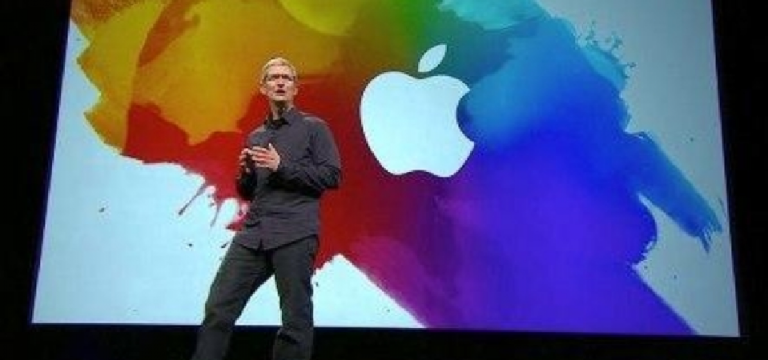
Uber lost to Didi Chuxing in China. Facebook’s WhatsApp is a tech generation behind the innovation of WeChat. DJI is peerless in civilian drone making. Alibaba pioneered a new sector in digital commerce. Baidu has a vision to become the operating system of the autonomous vehicles through Apollo. Chinese companies are ferocious in battles and they are winning, at home. Apple is brutalized, in China. From Fortune Newsletter:
Apple’s omnipresence feels odd to me because in China, where I spend most of my time, Apple is just one species in a far more diverse gadget ecosystem that includes brands like Samsung, Huawei, Oppo, Vivo and Xiaomi. I live in a small beachside village on the far southeastern tip of Hong Kong island where every morning tour buses disgorge hundreds of selfie-mad mainland tourists. My totally unscientific observations of these throngs suggest that fewer than one in 20 is using an iPhone. That’s about the same ratio I’ve seen on recent trips to Shanghai, Shenzhen and Guangzhou. […]
China is still Apple’s most important market. As I’ve noted in last week’s CEO Daily, Apple’s market share in China has slumped to 7%, down from 16.5% in 2014. The current issue of The Week in China offers a detailed examination of why Apple’s China sales have faltered. Their conclusion: the specs of Chinese handsets now rival that of Apple’s phones, and Chinese consumers—who prefer the online services of China’s two tech giants, Tencent and Alibaba—are far less wedded to Apple’s operating system than their American counterparts
As I have noted many times, the future of Apple is not assured. It is losing China, not because it cannot make good phones. Its problem is that its operating system is not in sync with what other enterprise players are building upon. The implication is that with its closed ecosystem, any service that is not from Apple cannot be of best quality because the enterprises do not have access to iOS, the Apple operating system. Contrast that with Android where companies can even make a different flavor to meet their needs. They do not have that opportunity in Apple iOS and can only work based on limited access Apple provides.
Apple is a great firm that figured out how to monetize hardware with highly differentiated and exclusive software. To enjoy the Apple universe, you must use Apple physical product. Apple executed that in the consumer world. But as it moves into enterprises and other domains like cars, clinics, homes etc, Apple strategy will hurt it. In enterprises, after the era of IBM, no one wants to be tethered to hardware and software. Why use Siri which requires Apple hardware when Alexa is agnostic of hardware?
You can control the individuals (the consumer market) but in enterprises, the variants are many. No single company can model that. Nearly every car company is testing Android for car infotainment. Samsung will be a natural partner to them. With no access to iOS, Apple loses.
I do think it will be challenging for Apple to succeed in the enterprise with its strategy of keeping iOS out of reach. We are in the era of post-production and it must have a balance to drive new sources of growth with iOS
This disconnect will hurt Apple. It is clearly showing in China as users there see the integration of WeChat and Alipay services less robust in iOS than in Android. And with their lives built around the services, the physical hardware from Apple does not change the perception. They are not interested in Apple’s Music and other services it offers. They already have what they like and they want a phone that makes using those services easy for them. Apple’s closed ecosystem is not helping the companies that make those solutions. That is why as Tencent and Alibaba rise, Apple keeps losing market share because their services have abstracted the premium quality of Apple’s differentiated hardware which runs exclusive software. If WeChat cannot work well there, China does not care. Today, Tencent does not have access to iOS and cannot make a great WeChat for it, as it does for Android devices.
Register for Tekedia Mini-MBA edition 18 (Sep 15 – Dec 6, 2025) today for early bird discounts. Do annual for access to Blucera.com.
Tekedia AI in Business Masterclass opens registrations.
Join Tekedia Capital Syndicate and co-invest in great global startups.
Register for Tekedia AI Lab: From Technical Design to Deployment.
Apple cannot make all services and will lose on those it cannot create by itself. From services like WeChat to car infotainment services, Apple will lose because entrepreneurs cannot make the best products without access to core iOS technology as they do with Android. This, I believe, is Apple’s most formidable challenge. It is executing a very weak strategy which will hurt it once smartphone and tablet mature. Yes, it will come one day when their improvements will be marginal.
Laptop went through many phases until it hit maturity. Unlike in the past where on-board modem was seen as innovation, today’s laptops are mundane in their core-feature differentiations. When phones and tablets get to that maturity level, the business will move to what you do with them, and not really who made the mobile devices. With the devices largely the same, the interoperability of the services will become the driving acquisition factor. For today’s Apple strategy, only services it makes can deliver the best quality on iOS. But the world is not Apple’s as we have areas it cannot offer direct services. With partners not capable of delivering the best quality of service, owing to not having access to core iOS technology, Apple’s differentiated hardware and exclusive software will struggle. If Apple does not solve this challenge, it will struggle in the future.
---
Register for Tekedia Mini-MBA (Sep 15 – Dec 6, 2025), and join Prof Ndubuisi Ekekwe and our global faculty; click here.


